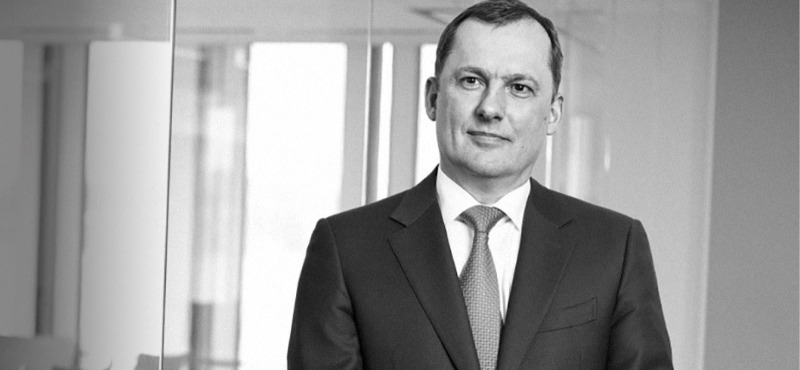Vitaly Mozharowski of Bryan Cave Leighton Paisner–Russia’s 2020 “Law Firm of the Year” for Real Estate Law—discusses how a recent cross-border merger has positioned their firm for the future. In an interview with Phillip Greer, CEO of Best Lawyers, Mozharowski also talked about how they remain environmentally conscious with many of the projects they undertake.
Best Lawyers: Bryan Cave, the Real Estate and Construction Practice is one of the largest and most sought after in the Russian market. Last year your firm underwent a cross-border merger between leading international firms. How has this merger fortified your position as an industry leader?
Vitaly Mozharowski: Well frankly, when I learned first about the potential merger three years ago, I was skeptical about this marriage with respect to the future of the Moscow office, because political tensions between the governments of the United States and the Russian Federation result in foreign investors taking a very cautious approach when considering entrance to the Russian market. However, thank God I overestimated that risk and the negative impact of the merger over the Moscow office operations was very limited.
You yourself manage one of the largest legal teams in the market, and you’ve done so for more than 20 years. How do you go about recruiting and mobilizing such a team?
Vitaly Mozharowski: It looks like we do not need much to recruit. My key task is to retain the team. The majority of people who stay with me and work with me, do have more than 10 years of experience of working in my team, so I do not have big turnover. This results in no large demand for newcomers. Of course, we employ but predominantly juniors, so I prefer organic growth.
Your firm appears to hold strong environmentally conscious values. Often time, development and environmentalism have conflicting priorities. How does your firm balance the values with the business side of development, and how do your clients usually respond?
Vitaly Mozharowski: Well it’s a very simple question, because I prioritize long-term values and strategy. We consider it as an investment. This results in a situation where we keep our work as an environmentally friendly company with experience in environmental matters. In turn, this results in international majors going to us because we have a predictable level of legal services, good reputation and an attractive image.
Earlier this year the World Economic Forum identified climate change as one of the most catastrophic threats to the world’s economy. How is the Russian market responding to these warnings? Do you see any immediate impact on the real estate and development industry?
Vitaly Mozharowski: Well in a situation that natural resources and energy are comparatively cheap, I cannot say that Russia is among the leaders of green energy initiatives. However, I’m surprised myself, I see notable developments in the green energy sector: private investments in the renewable energy projects, initiatives about reusable packages, efforts of authorities aiming to improve public transport and incentivizing people to leave their private cars in favor of car sharing & public transport. I see a new trend of developments in the field of transport hubs, especially in the city of Moscow. The city authorities invest large amounts of time, resources and money into developing transport hubs to make public transport as much attractive for citizens as possible. That’s really great!
Have there been any other important policy shifts locally or internationally that impact real estate law?
Vitaly Mozharowski: Yes. Possibly what we see here is similar to what is visible on the European markets. First of all is digitalization. For example, when we speak about the retail industry and retail property, people start preferring to make shopping via the internet rather than going to shopping malls. This in turn results in shopping malls having now a sort of their concept reconsideration and conversion: instead of a purely shopping mission they are getting more focused on emotional and entertainment mission. So people come to the shopping malls not only to do some shopping but also to get some emotional and entertainment experience. That means that many of retail operators reduce the space, replace traditional shops and outletswith e-shopping.
A similar situation is arising in the office property sector, due to digitalization. More people prefer remote employment, so instead of every morning going into the office, many people are able to stay at home, or occupy a coworking space in the vicinity of their homes. Thus, many corporate office users appear to need less property and office space.
In Russia, we see a very interesting situation now: although, mainly due to political reasons, share of international tenants in the office market is shrinking the vacancy rate on the office market is gradually going down. So that means that the new consumption of offices exceeds that share that the internationals are getting rid of. A very interesting situation. In turn this results in developers thinking of new investment into the office market. Those apartments, hotels, residential property projects that were started a few years ago, , are now reconsidered by the developers for partial conversion into the office projects.
Finally, as for the logistic property, this is booming; again, possibly as a result of digitalization. Retailers who use e-shopping, or restaurants, they also start using the internet for delivery of orders. They need more and more logistics space, and logistic property sells really well. That’s basically it.
Note: This interview was edited for brevity and any grammatical clarifications.
Reference: An Interview With Bryan Cave Leighton Paisner
3,020 total views, 2 views today

